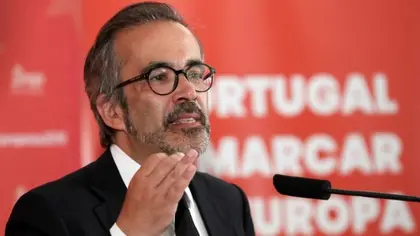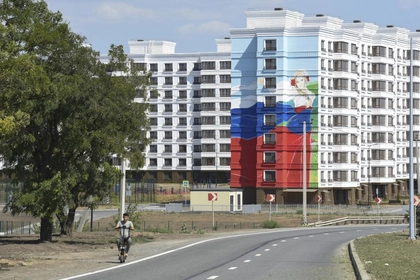The new Portuguese government of Prime Minister Luís Montenegro favours Ukraine joining the European Union, Portugal’s new foreign minister Paulo Rangel said on Thursday, criticising the previous government’s hesitation.
“Prime Minister Luís Montenegro has given a clear signal that he is in favour of EU enlargement. This is something that I think needed to be clarified because Portugal had some hesitations, especially when it was being given candidate status last year,” said Rangel at the end of a ministerial meeting of the Atlantic Alliance in Brussels, as reported by Euractiv’s partner Lusa.
JOIN US ON TELEGRAM
Follow our coverage of the war on the @Kyivpost_official.
The minister recognised that the previous socialist government of ex-prime minister António Costa was “totally on Ukraine’s side”, but on the issue of enlargement “there was at least some hesitation there, which always created a margin of ambiguity”.
“Now there is no ambiguity,” he added.
The former prime minister warned on several occasions that EU enlargement must be accompanied by a reform of the EU bloc’s structures, including its budget, to avoid imbalances in, for example, the distribution of European funds, the representation of countries in the European Parliament and even the decision-making rules between member states.
Responding to these warnings, the Foreign Minister acknowledged that enlargement “of course implies financial and treaty reform”.

IMF Approves $1.1 Billion Loan Disbursement to Ukraine Before Trump Inauguration
“That was the position of the previous government and it remains the same,” he added, drawing a distinction with the current government, which has shown a “firm commitment to support enlargement when it has to take place”.
Ukraine applied to join the European Union in February 2022, shortly after the Russian invasion began and was granted the status in June of that year.
In December 2023, the European Commission recommended that the European Council open negotiations, but there is still no specific timetable.
You can also highlight the text and press Ctrl + Enter






